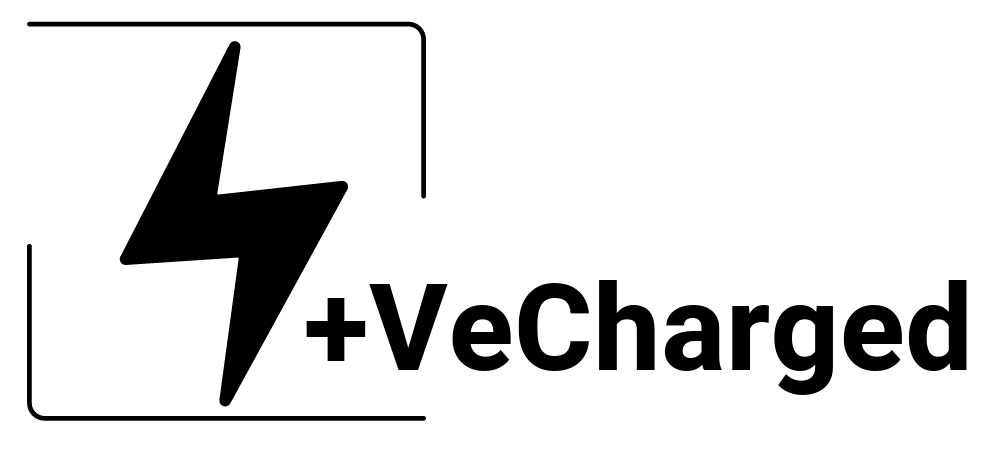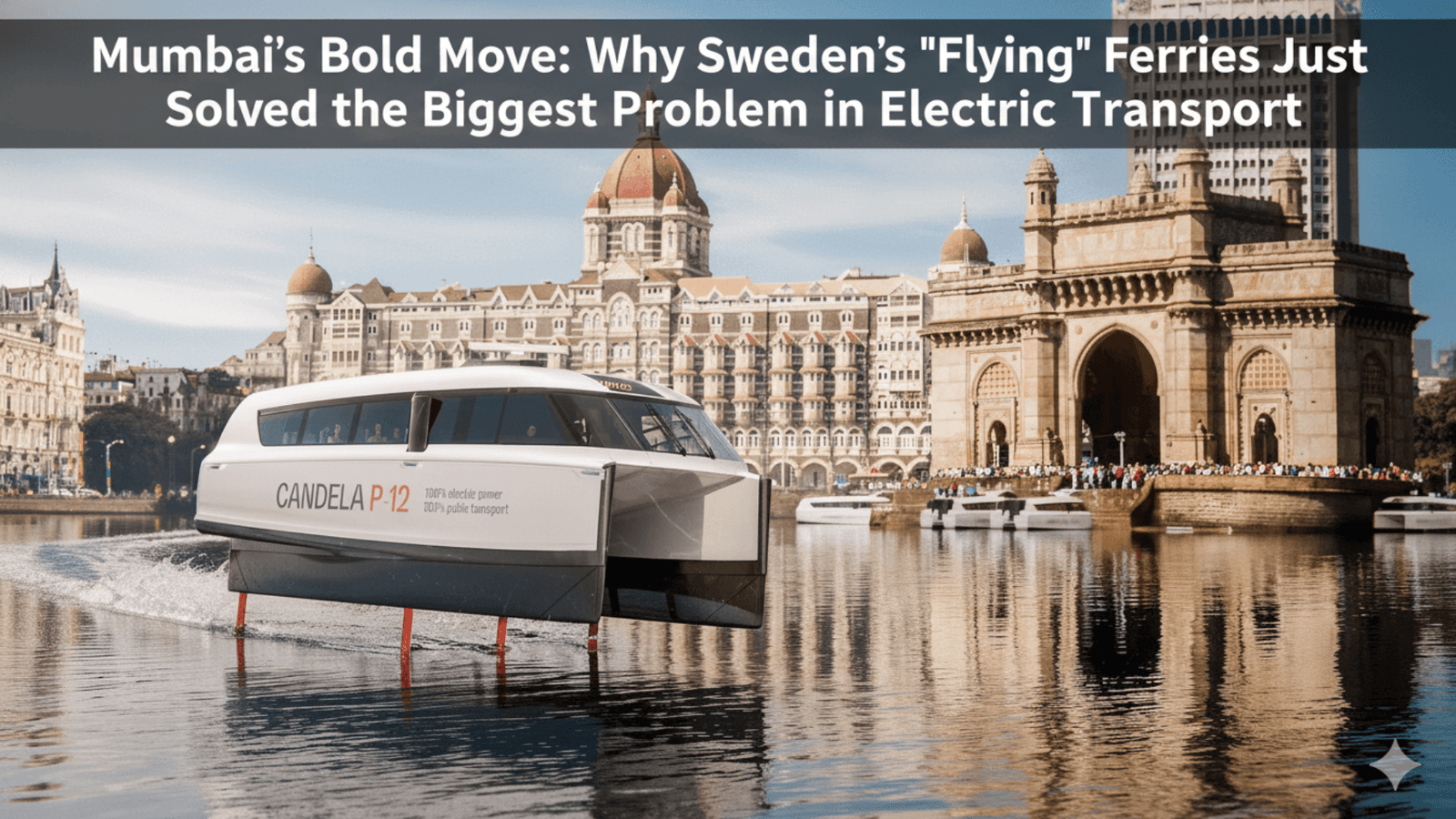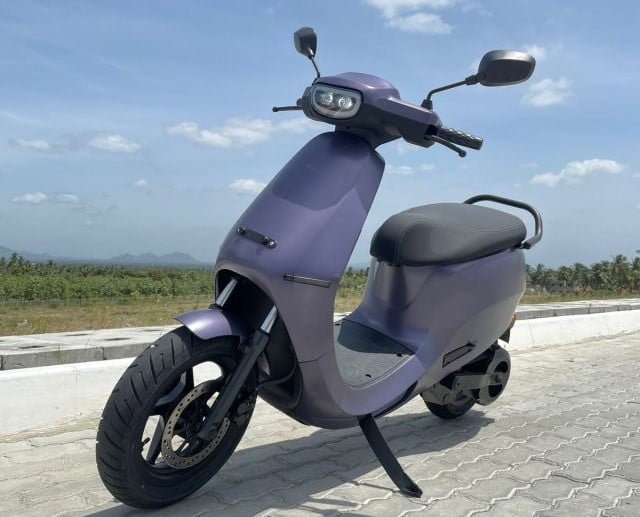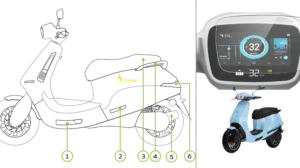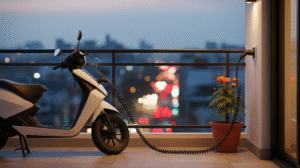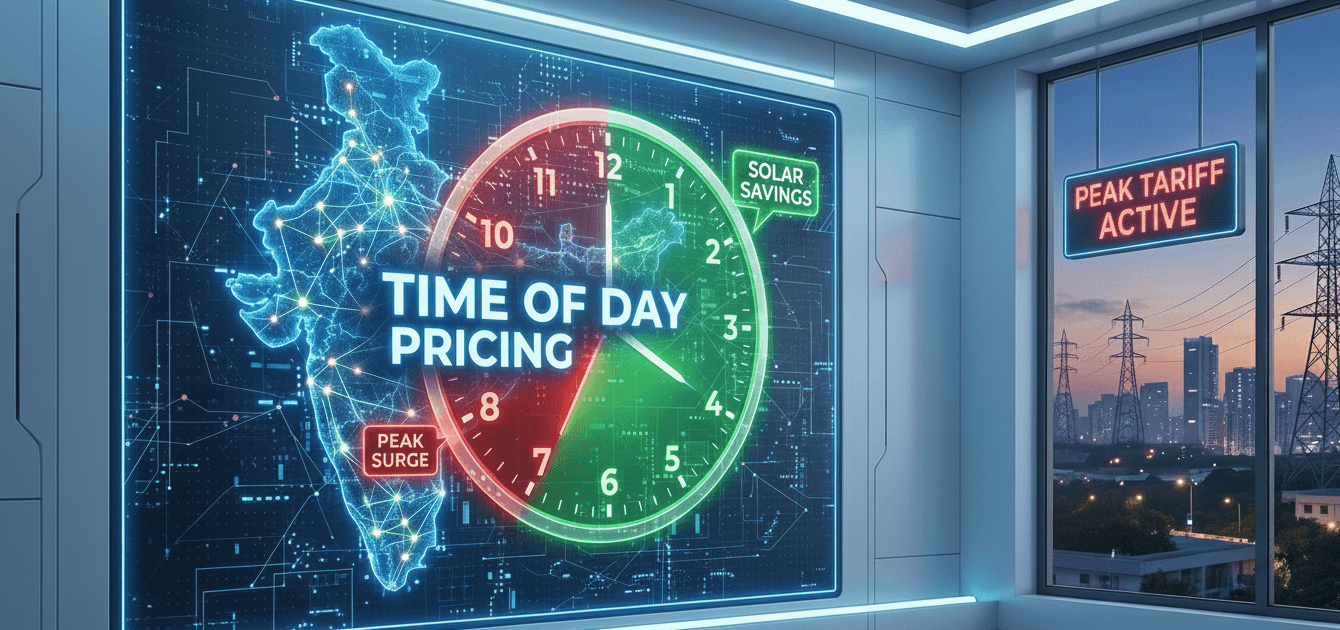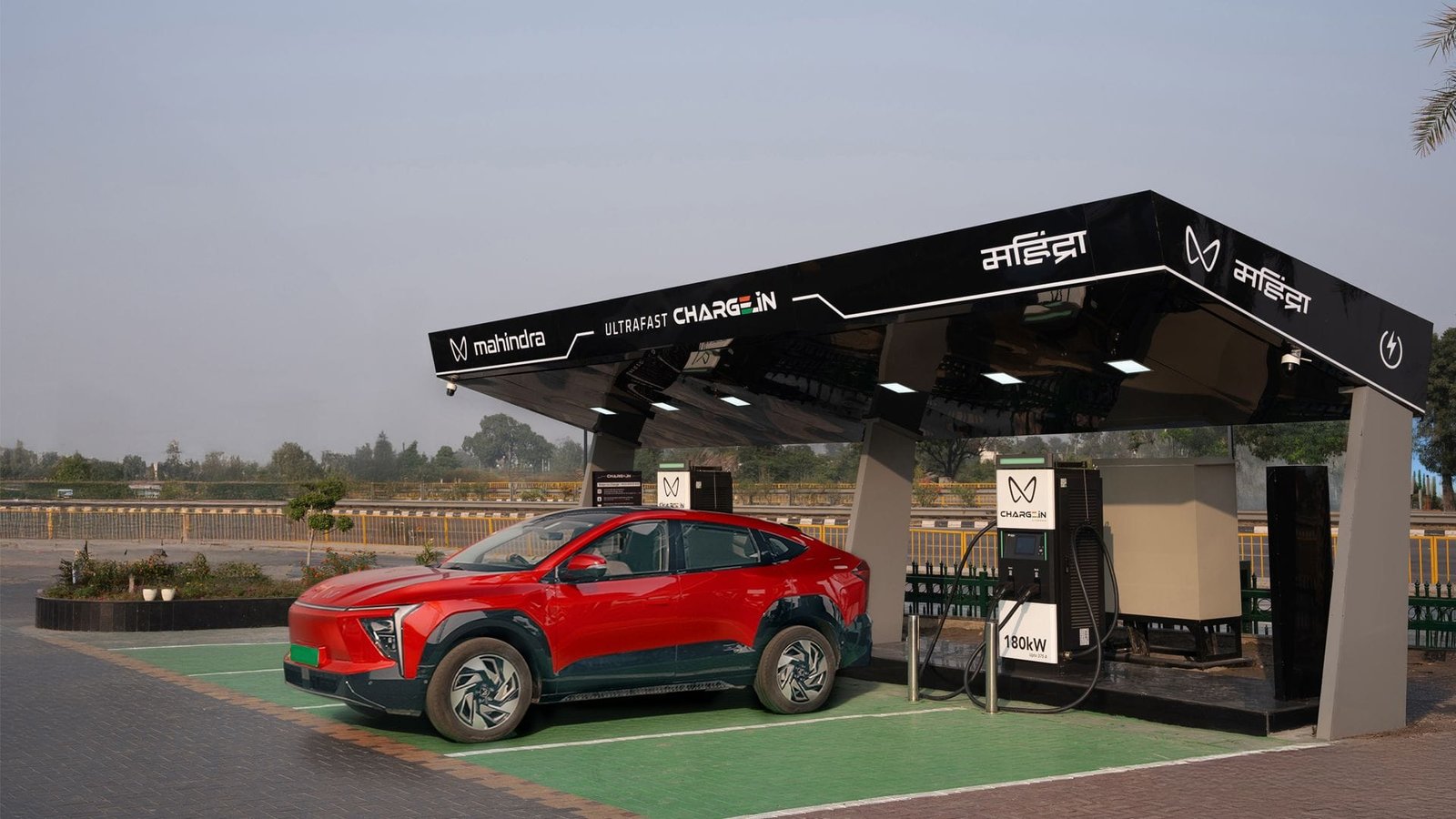I have to be transparent: The transition to electric transport faces a huge, glaring problem: inefficiency. On land, we lose energy to tires and drag. On the water, traditional ferry hulls lose a staggering amount of power plowing through waves. This is why most large electric ferries fail on range and speed.
Mumbai—India’s most populous city—just ordered the world’s largest electric ferry fleet from Sweden’s Candela, and they are not buying traditional boats. They are buying flying hydrofoils. This is the definitive audit of the Candela P-12, revealing why this technology is a complete game-changer for urban mobility and global emissions.
How Mumbai Solved the Efficiency Crisis
Mumbai’s problem is traffic: its roads are congested to the breaking point. The solution lies in its greatest unused asset: the sea. But to use the sea, the ferries must be fast, frequent, and cheap to run.
The Foiling Advantage: 80% Energy Reduction
The secret weapon is hydrofoil technology.
- The Technology: The Candela P-12 features computer-controlled underwater wings (hydrofoils) that lift the entire hull of the vessel above the water at speed.
- The Physics: By lifting the hull out of the water, the system eliminates up to 80% of water resistance (drag) compared to a conventional boat.
- The Result: This energy reduction allows the electric ferry to achieve long range and high cruising speed (25 knots).
A Life Cycle Assessment (LCA) study by KTH Royal Institute of Technology found that the carbon footprint of an electric hydrofoil ferry is 97.5% lower than that of comparable diesel vessels over a 30-year service life. This is the most definitive sustainability stat in the industry.
Commute Decoupler: Time & Energy Savings Audit
See the impact of foiling technology on operational costs and travel time for a typical route.
1. Set Passenger Volume (P-12 Capacity)
2. Set Average Commute Time (By Diesel Ferry)
Example: Mumbai’s new airport route saves time from 90 min to ~40 min.3. Verified Efficiency Results
Time Saved Per Passenger (Minutes)—Energy Consumption Reduction—Lifetime Emission Reduction—**The Foiling Advantage:** The core value is the **80% energy cut**, which directly translates to massive savings in fuel procurement over the 30-year operational lifespan.
THE ECONOMIC GAME-CHANGER: Time Savings and TCO
Mumbai’s order of 11 vessels is a calculated move to cut two major costs: fuel (diesel) and passenger time (congestion).
Actionable Savings: Time and Fuel
The economics are straightforward: the higher initial capital cost of the P-12 is offset by 40%–90% lower operational costs (fuel/maintenance) compared to diesel, leading to a profitable TCO.
| Route | Road Travel Time (Car) | Foiling Ferry Time (P-12) | Time Savings |
|---|---|---|---|
| Gateway of India to Alibaug | 2–3 Hours | Less than 1 Hour (25 knots) | Up to 2+ Hours Saved |
| New Airport to Central Mumbai | 60–90 Minutes | Approximately 40 Minutes | Significant Commute Reduction |
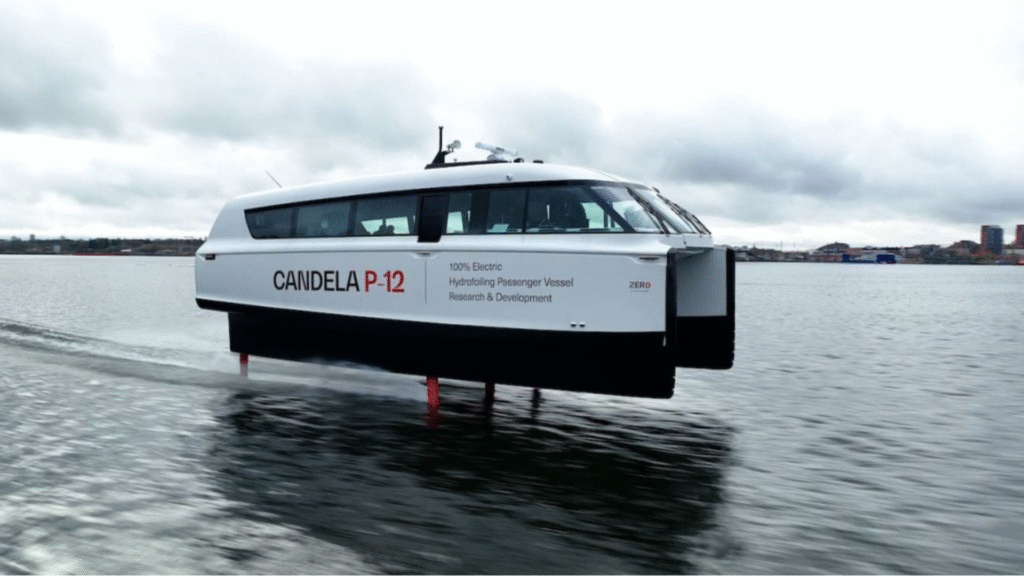
Durability and Efficiency
- Zero Noise, Zero Wake: The P-12’s technology virtually eliminates wake and noise pollution, protecting shorelines and benefiting the environment.
- Expansion Strategy: The initial 11 vessels ordered by JalVimana will operate on key routes. This fleet serves as a template for a much broader electric ferry network across Mumbai’s coastline and inland waterways, establishing India as a global leader in sustainable urban water transport.
The New Gold Standard for Waterborne Travel
Mumbai’s strategic decision is a template for urban centers struggling with traffic and emissions—from New York to Bangkok.
The Candela P-12 proves that the highest form of efficiency is achieved when you fundamentally change the physics of the problem (foiling), not just the engine (electric). This is the new gold standard for sustainable public transport that is fast, profitable, and green.

